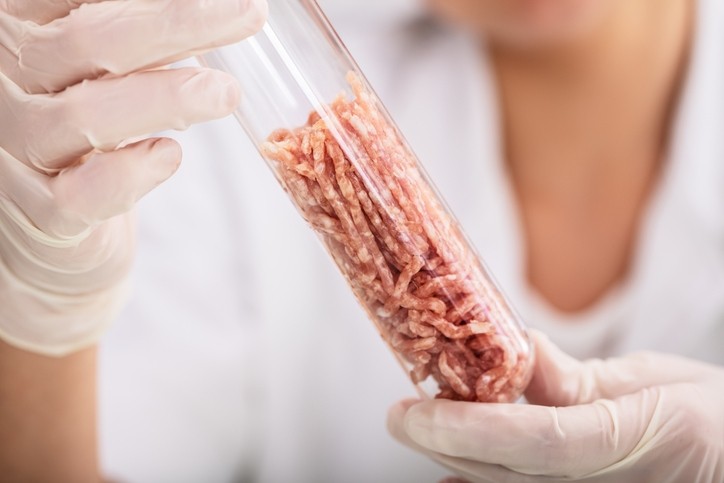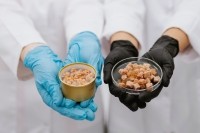Lab-grown meat startups target the pet food sector

Czech Republic-based Bene Meat Technologies is aiming to supply the EU pet food market, with it securing acceptance in the European Feed Materials Register in November last year.
Tomáš Kubeš, head of strategic projects, at Bene Meat, told FeedNavigator that it is seeing demand from pet food companies; the industry is seeking more sustainable and ethical products.
“Moreover, consumption of meat is dropping, and buyers do not want to be without protein raw materials. They are looking at a longer strategy to diversify protein supply.”
Bene Meat is currently looking to run a long-term feeding trial to prove the safety credentials of its lab-grown meat. This will be conducted while it sets about building its first production facility, which it hopes to open by the end of the year. Daily output of several metric tons of cultivated meat per day is the goal.
Commercially, Bene Meat will be focusing initially on inclusion of its lab-meat in diets for cats and small dogs before scaling up to incorporation into formulas aimed at larger dogs and other pets.
Asian deals
Meanwhile, Canada-based Cult Food Science, which leads investment, development, and commercialization projects in the cellular agriculture space, last year announced collaboration partnerships with two Asian innovators for cultured fish and meat.
In autumn 2023, it introduced Marina Cat, a blend of ocean snapper, cultivated by Singapore-based biotech startup, Umami Bioworks. In August 2023, Cult reported that a tie-up with Korean startup, Everything But, will add cell-cultivated chicken to its roster of ingredients for pet brands.
In June last year, US regulators approved the sale of chicken made from animal cells for use in human foods. But they have not approved cultivated meat as a pet food ingredient, yet.
Cult Food Science CEO, Mitchell Scott, is confident about the suitability of lab-grown meat for inclusion in pet food formulas, and believes it will prove an economically viable ingredient for the pet food industry.
“I think, longer term, cultivated meat will shift and become key part of what people consume and feed their pets as well.”
FeedNavigator's inaugural Pet Food Digital Summit runs 5-6 March.
This cutting-edge event comprises four distinct sessions over two days:
- Mining the Microbiome: Balance is Everything
- Sustainable Sourcing: Limiting Pet Industry Impact on Ecosystems
- Premium Categories: Does the Humanization Trend Still Have Legs?
- Mitigating Safety: Challenges in Pet Food Manufacturing
Each session promises engaging presentations, fireside chats, and panel discussions featuring industry stakeholders. As a testament to our commitment to knowledge-sharing, the Pet Food Digital Summit 2024 is entirely FREE to attend, with pre-registration required.
Last year we heard how BioCraft Pet Nutrition, a company developing cultured meat for the pet food market, had created a chicken cell line for both cat and dog food. It is derived from stem cells; the cultured chicken ingredient develops under process conditions inside a bioreactor.
Bond Pet Foods in testing tie-up with Hill's
While some startups are developing meat proteins through cell culture, others are employing traditional or biomass fermentation methods to create alternative proteins that have nutritional value.
Bond Pet Foods founder and CEO, Rich Kelleman, announced earlier this month that the company had delivered two metric tons of animal protein to Hill's Pet Nutrition.
That startup’s approach to animal protein development is based on precision fermentation. It sees takes DNA extracted from a blood sample from a live chicken, and then the company’s R&D experts combine that DNA with yeast and put into a fermentation tank, where it is fed sugars, vitamins, and minerals. Once it reaches a certain density and composition, the fermented meat protein is dried and ground into a powder.
Bond says the testing being done on its protein by Hill’s represents a major milestone toward it commercializing its fermentation technology for pet food applications.

















